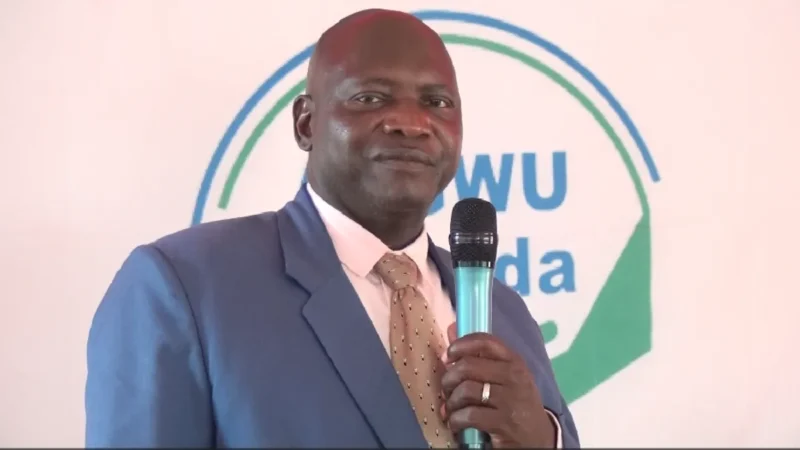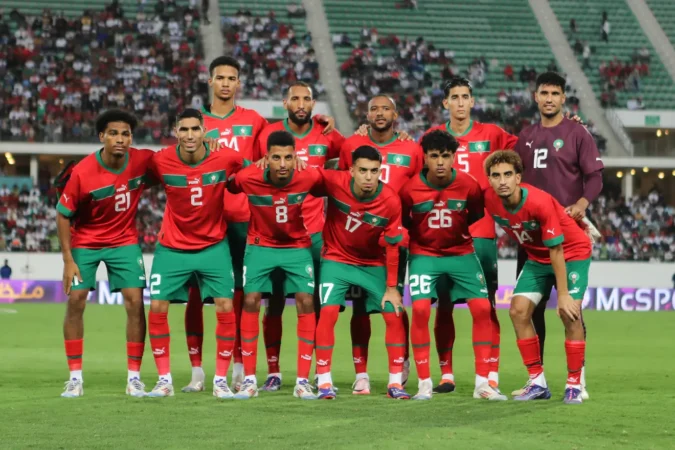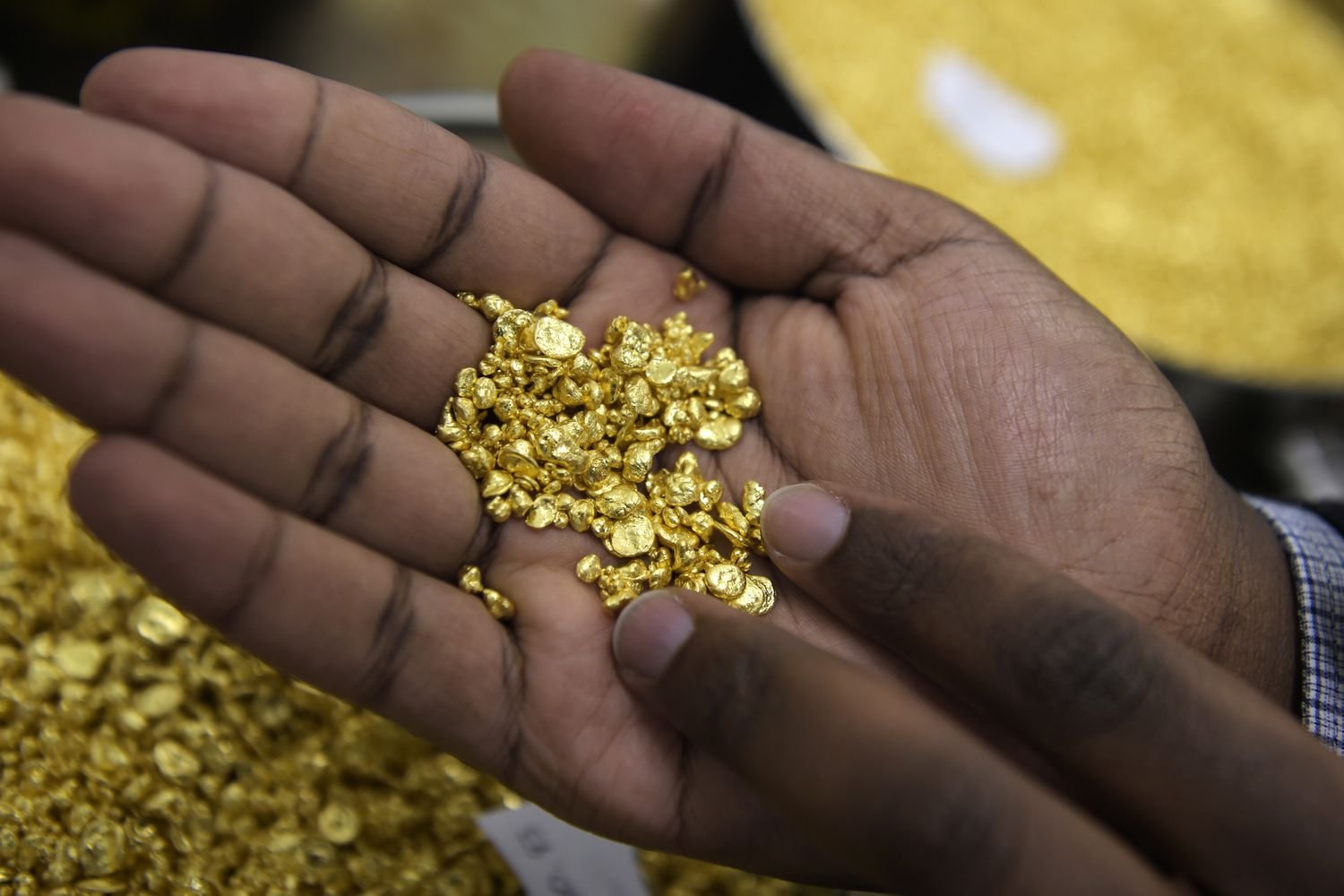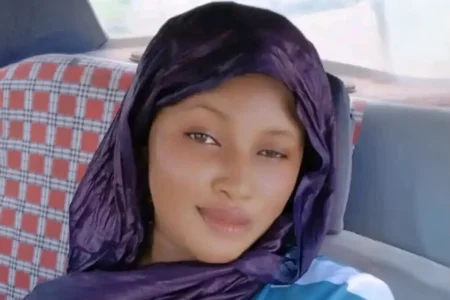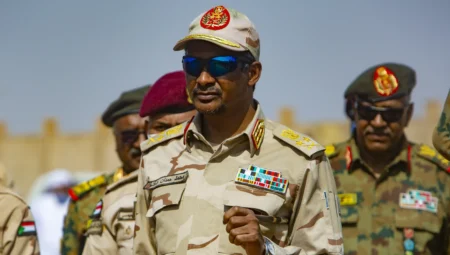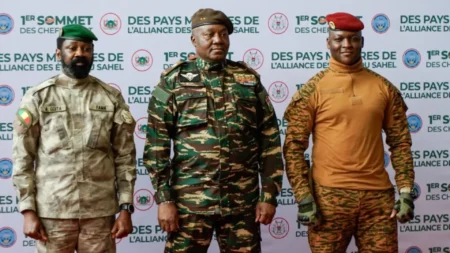OUAGADOUGOU, Burkina Faso — As gold prices soar to historic highs in 2025, investors across the globe are pouring money into the precious metal, viewing it as a safe haven in a world marked by economic uncertainty, trade wars, and geopolitical strife. Yet behind this global gold rush lies a troubling reality — one deeply rooted in the conflict-ridden Sahel region of West Africa.
In Burkina Faso, Mali, and Niger, military juntas battling jihadist insurgencies and regional isolation are relying increasingly on gold revenues to stay afloat. These countries collectively yield approximately 230 tonnes of gold annually, valued at around $15 billion, according to estimates by the World Gold Council. However, due to a lack of reliable records on artisanal and small-scale mining, this figure is likely a conservative one.
“Because gold prices have been at a historic high… the military governments are hoping that they will be able to benefit directly,” said Beverly Ochieng, a senior researcher at global consultancy Control Risks, in an interview with the BBC.
The Sahel’s combined output now surpasses that of any other African region, placing it at the heart of the global gold trade. These governments argue that gold wealth is empowering citizens and increasing national sovereignty. However, the growing presence of Russian mining interests suggests a shift away from Western firms.
In Mali, junta leader Gen Assimi Goïta recently inaugurated a new gold refinery in which Russia’s Yadran Group holds a minority stake. The facility is expected to generate 500 direct and 2,000 indirect jobs.
Meanwhile, Burkina Faso is establishing its own refinery and has introduced a state-owned mining entity that mandates a 15% stake in foreign mining operations, along with skills transfer to local workers.
State propaganda has followed closely behind. An artificial intelligence-generated media campaign in Burkina Faso features a synthetic voice resembling Rihanna, crooning: “Mining gold from deepest dirt. But souls are rich and true,” — an ode to Capt Ibrahim Traoré, the country’s 37-year-old military ruler.
But the realities on the ground tell a far darker story.
According to Ms Ochieng, these regimes are desperate for fast cash to finance escalating counterinsurgency efforts. In Mali, a significant portion of that fight has been outsourced to Russian mercenaries — notably the Wagner Group and its successor, Africa Corps, which is now formally under Russia’s defence ministry. Though the presence of Africa Corps in Burkina Faso is officially denied, the group has reportedly played a role in military training.
With little transparency around public spending, analysts believe that a substantial part of these nations’ budgets goes to security. In Mali alone, military expenditure has tripled since 2010, consuming 22% of the national budget by 2020.
These military forces are engaged in protracted battles against jihadist factions tied to al-Qaeda and the Islamic State. Yet, human rights organisations say the cost of this war is often borne by civilians.
Human Rights Watch has documented allegations of atrocities — including unlawful killings, executions, and torture — committed by Malian forces and Wagner operatives. Similar accusations have been levelled at Burkina Faso’s military and allied militias.
Analyst Alex Vines of Chatham House told the BBC that groups like Wagner are frequently compensated not in cash but through gold mining concessions. “Very little [of the gold revenues] will trickle down to Malians and Burkinabés,” he warned, suggesting that jihadist insurgents may also be profiting from gold mining activities.
In Mali, the 2021 coup led to a wave of harsh crackdowns against communities accused of supporting militants, pushing many civilians into the arms of groups like Jamaat Nusrat al-Islam wal-Muslimin (JNIM) — an al-Qaeda affiliate and the region’s most active insurgent group. JNIM launched a record number of attacks on Burkina Faso’s military during the first half of 2025, underlining its growing influence.
Gold mining — especially in the artisanal and small-scale sector — has become both a battleground and a revenue stream. A 2023 report by the United Nations Office on Drugs and Crime (UNODC) found that much of this informal mining takes place outside government control and often falls into the hands of militant groups.
The UNODC estimates that most of this gold is smuggled to the United Arab Emirates (UAE), a global hub for gold trading and refining.
“You do see overlap of violent extremist groups moving onto artisanal production areas for control,” said Dr Vines.
Despite the gold price surge, miners themselves have seen little benefit. A miner in northern Mali’s Kidal region, who requested anonymity due to safety concerns, told the BBC that on a good day he earns between 10,000 to 20,000 CFA francs ($18 to $36). “Prices went up, but the extra profit goes to mine owners… It’s risky and uncertain, but for many of us, it’s the only option,” he said.
Dr Vines, a former UN blood diamond investigator, now fears gold has overtaken diamonds as Africa’s primary conflict resource. Unlike diamonds, which were the focus of the Kimberley Process Certification Scheme created in 2003, gold remains largely unregulated in conflict zones.
Efforts to clamp down on “blood gold” have met limited success. While the London Bullion Market Association (LBMA) mandates compliance with OECD-based guidelines, enforcement — particularly in the UAE — has historically been inconsistent. The Gulf state introduced its own ethical gold standards in 2021, but these remain voluntary.
Tracing the source of gold is another critical challenge. “There is no ‘DNA testing’ for gold,” explained Dr Vines. “With a lot of effort, you can trace diamonds before they get polished and cut… But I haven’t seen ways of tracing the origins of a gold nugget.”
Also Read: UPDF Deputy Commander Col Kasule arrested over alleged robbery, kidnapping of gold dealer
Gold is typically smelted early in its value chain, erasing any markers of origin. As a result, it becomes nearly impossible to trace whether gold entering Western markets — including the UK — comes from conflict zones like the Sahel.
“[Gold] gets smelted in [the] UAE, then goes onto the jewellery manufacturing industry, or into dentistry, or bullion. Some of it clearly comes into the UK. And once it is here, there is no way of testing what it is.”
Unlike the Kimberley Process, which focused on non-state actors, any similar framework for gold would need to contend with state actors — a much more complex task.
“Kimberley was designed to deal with armed non-state actors in places like Sierra Leone and Liberia,” said Dr Vines.
As long as the gold trade remains lucrative and ethical oversight remains weak, West Africa’s mineral wealth is likely to continue funding violence — with communities across the Sahel paying the price.
